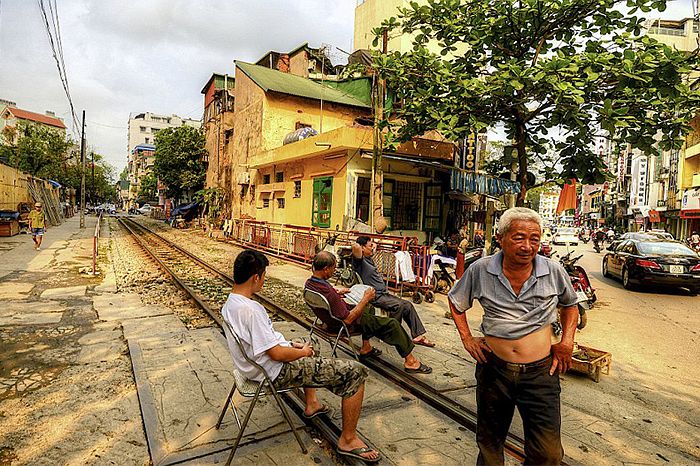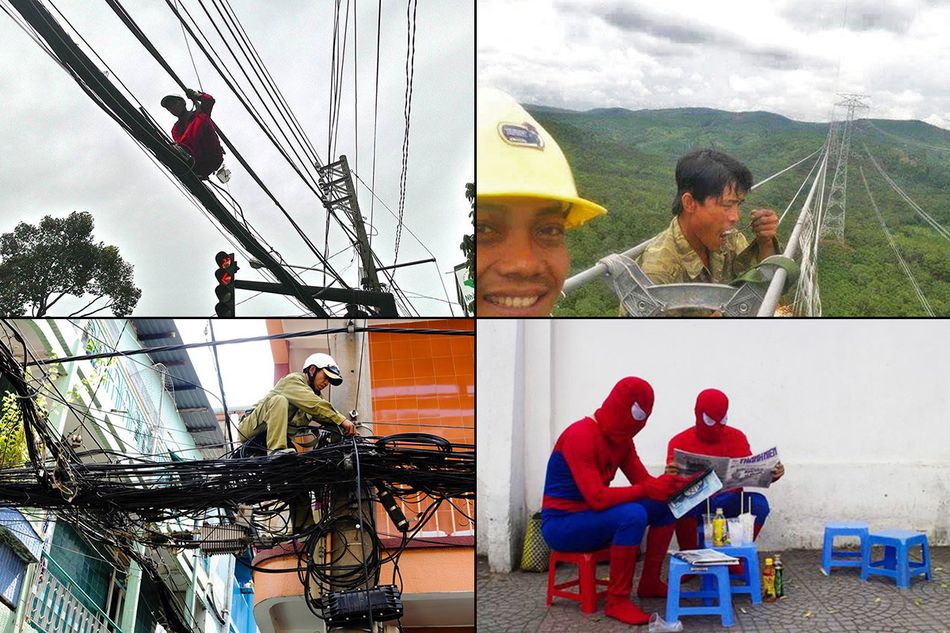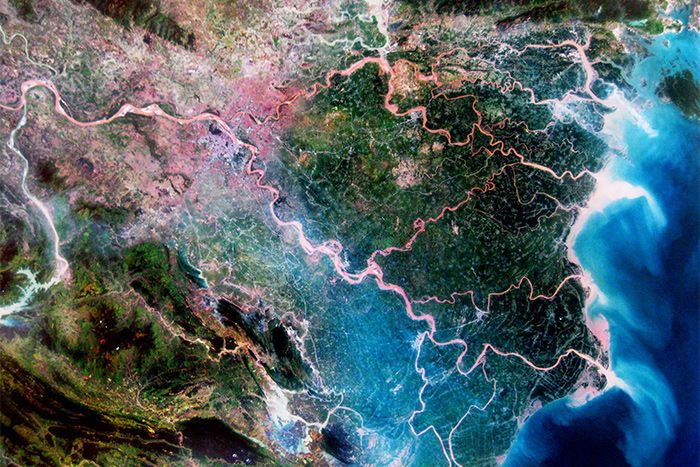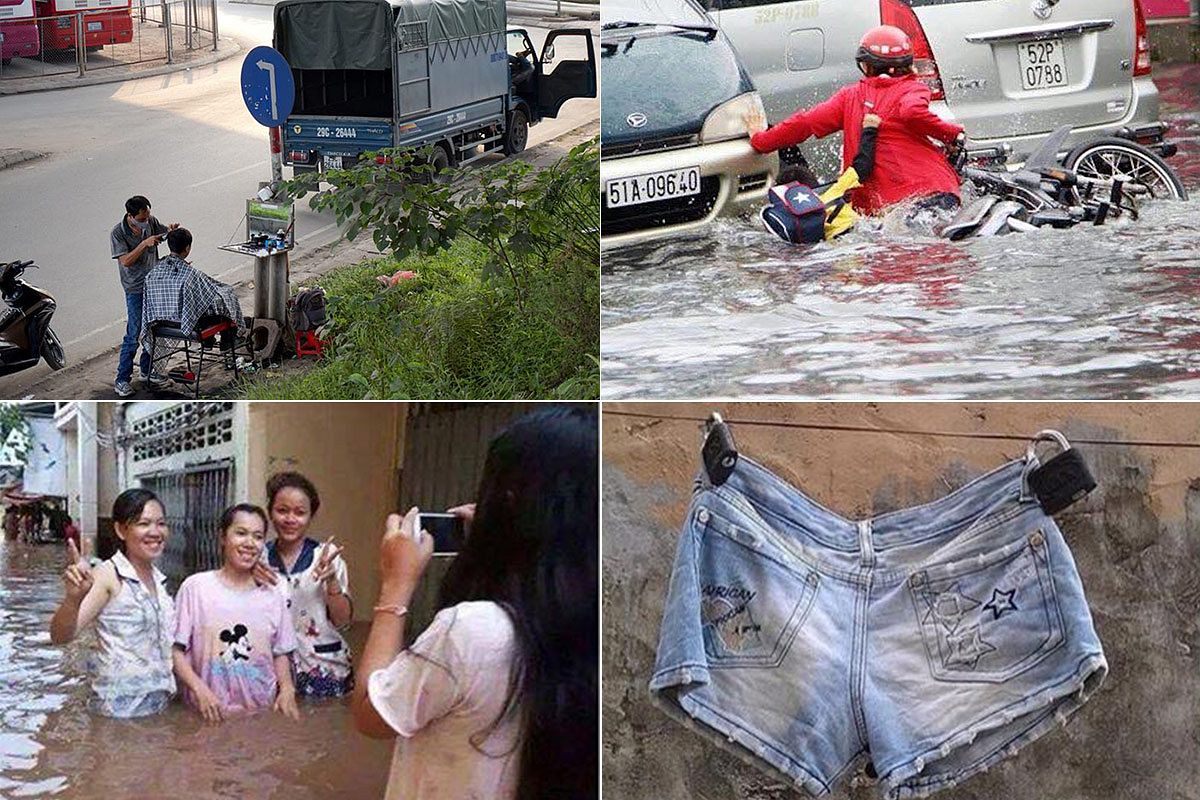From north to south, urban Vietnam is full of contrasts. Skyscrapers go up next to shophouses. Food carts rub shoulders with five-star hotels. And sometimes, amid the changing cityscapes of this fast-developing country, millionaires inhabit the same space as those struggling to make ends meet.
In a beautiful series of black-and-white photos for Lao Dong, photographer Duong Quoc Binh captures the humanity of one such impoverished community. In the heart of the capital, residents of Long Bien District's Phao village, a floating settlement on the banks of the Red River, lead a life of poverty in one of Vietnam's most developed metropolises.
Focusing on one of the 28 families in Phao village, Binh chronicles the realities of life in precarious circumstances. Rickety wooden houses are surrounded by a river but have no access to clean water for drinking or cooking. Generations of families live under one roof, parents struggle to send their children to school and necessities like medical care are simply not an option.
Take a look at the poignant photos and personal stories of Phao village residents below:

During the day, the village elders take care of young children while their parents work as dishwashers and scavengers on the streets of the capital.

With limited resources, the people of Phao village are often unable to seek medical care. Thu, who is sick, stays home during the day while his wife looks after children in the neighborhood.

Though most of Phao village's families come from the countryside, Nga grew up on Hanoi's Yet Kieu Street before moving to the waterborne settlement.

Nga's husband, Hung, also grew up in the capital. His family has lived in Phao village since 1996. Hung is in poor health and unsure how long he will live. "When I die, my children will cremate my body and dump my ashes in the river in order to save money," he says.

Hung and Nga's household spans four generations. Here, the couple lives with six other people: two sons, two daughters-in-law and two grandchildren. Their daughter, also married, lives in the house next door.

At nearly 60 years old, Nga must provide for seven people. With her husband, son and daughter-in-law unable to work due to various medical conditions, she earns VND1.5 million a month cooking for a local restaurant and spends the rest of her time scavenging.

Despite its proximity to downtown Hanoi, Phao village lacks a clean water source, meaning that dishes are often done in the same water that serves as a toilet.

In a place with few opportunities, many families worry about the fate of their children. Phao village has a charity-run classroom, however most cannot afford medical care and other basic necessities.

A communal bookcase provides books for Phao village's children.
[Photos via Lao Dong]














